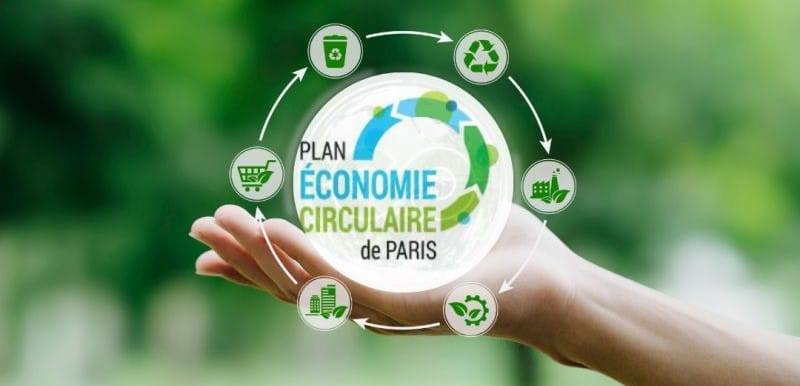Login Account
To view the article please login or create an account
- Clothing & Footwear
- Ethical Brand Stories
- Ethical Consumption Trends
- Food & Drink
- Personal & Household Care
Paris’s Circular Renaissance: Transforming Resources into Opportunities – Nov. 2024

As the world faces mounting environmental challenges, Paris is charting a pioneering course in the circular economy. Ademe defines the circular economy as a resource-efficient model promoting reuse, repair, recycling, and sharing. It offers an alternative to the “extract-make-consume-dispose” model. For over a decade, Paris has embraced this vision. The city is reimagining resource use to build a resilient, sustainable future.
Laying the foundations: Paris’s circular economy vision
Paris’s journey began in 2014 when the City Council unanimously adopted a “zero waste trajectory”. This bold commitment gained momentum in 2015 with the “Territoire Zéro Gaspillage, Zéro Déchet” initiative. The city also launched its first Circular Economy Plan that year. These efforts led to the creation of the Grand Paris Circulaire, a hub for resources, collaboration, and events. It connects stakeholders across the circular economy landscape.
Paris has also fostered grassroots initiatives that drive cultural and behavioural change. Projects like Repair Cafés, resource centres, and solidarity shops exemplify community-led efforts to reduce waste, repair items, and promote reuse. Supporting these is Paris&Co, which has launched a platform to accelerate circular innovation. These initiatives underscore Paris’s commitment to embedding sustainability at every level, from policy to practice.
Building on this strong foundation, Paris’s circular economy is now powered by a dynamic ecosystem of players, working together to transform waste into opportunities.
Pioneers of circular change: Paris’s key initiatives and players
Paris’s transition to a circular economy is bolstered by a network of public and private initiatives that demonstrate the power of collaboration. Organizations like Citeo are making strides in reducing and recycling household packaging. Phenix tackles food waste by redistributing surplus food to charities, combining environmental impact with social support. Les Canaux empowers circular and social entrepreneurs with workspaces and resources. La Textilerie promotes sustainable fashion with workshops and recycled materials.
Looking ahead: scaling circular practices across Paris
Agricultural innovation also plays a role, with Les Alchimistes transforming organic waste into local compost and Cycloponics creating urban farms in Paris’s underground spaces. Businesses like Envie le Labo refurbish and sell secondhand appliances, extending product lifecycles and reducing e-waste. Meanwhile, large-scale projects such as the Paris 2024 Olympics incorporate circular principles by mapping materials and planning their reuse post-event.
As Paris continues its circular journey, the focus shifts to scaling initiatives and integrating circular practices into even more sectors. Tourism, logistics, and organic waste management are key areas of development. Enhancing the city’s infrastructure for collecting and sorting organic waste is a priority, ensuring composting and material recovery become standard practices across neighbourhoods and businesses.
To support these efforts, Paris emphasizes education and community engagement, empowering citizens to adopt sustainable behaviours. Initiatives like urban farms, solidarity shops, and digital platforms are becoming embedded in Paris’s cultural fabric, making circular solutions more accessible and impactful.
However, the challenge lies in ensuring these efforts reach every corner of the city. By refining logistical systems, fostering public-private partnerships, and scaling successful pilot programs, Paris is setting the stage for circular practices to become an integral part of daily life.
In conclusion, Paris’s dedication to circularity has positioned it as a global leader in sustainable urban development. By integrating circular economy principles through policies, community initiatives, and innovative business models, the city turns challenges into opportunities for growth and resilience.
Other Posts


Interested in writing for the community?
Your contributions will nourish our collective intelligence and ignite constructive debates.
Write with us!
